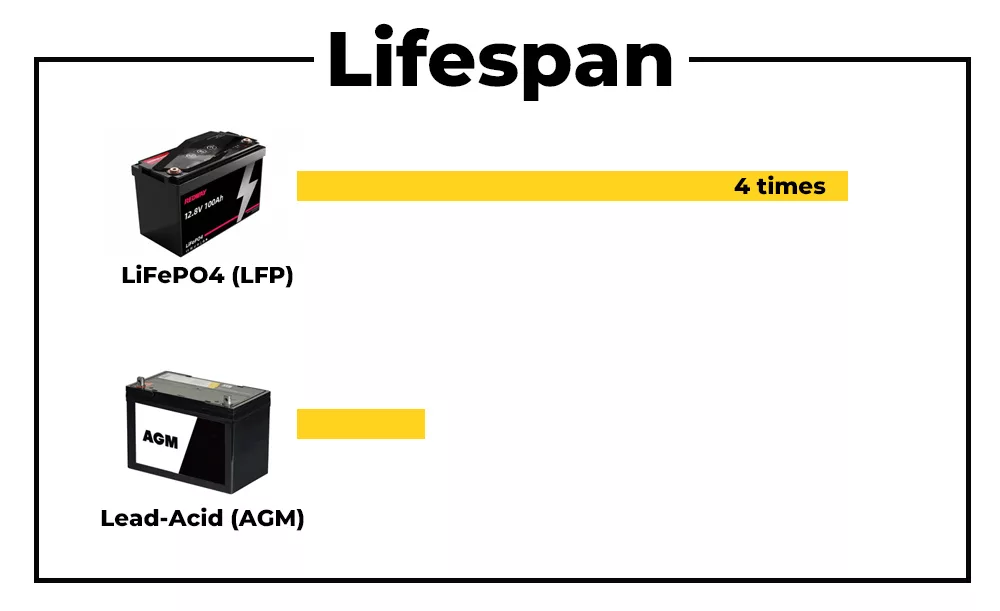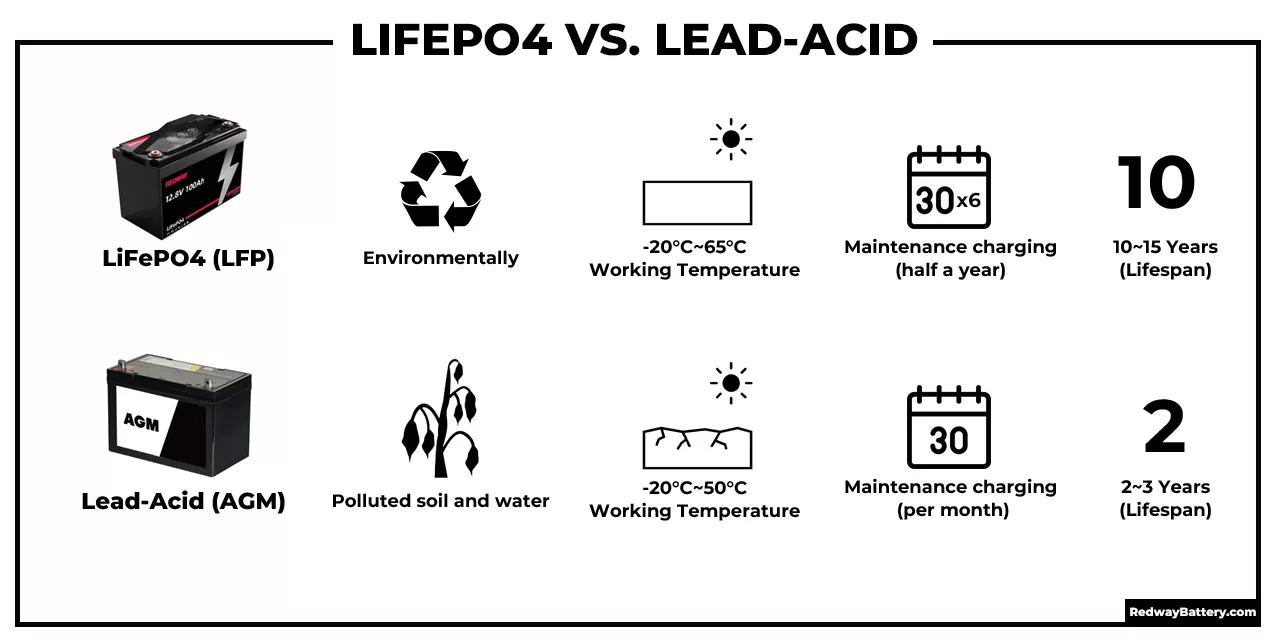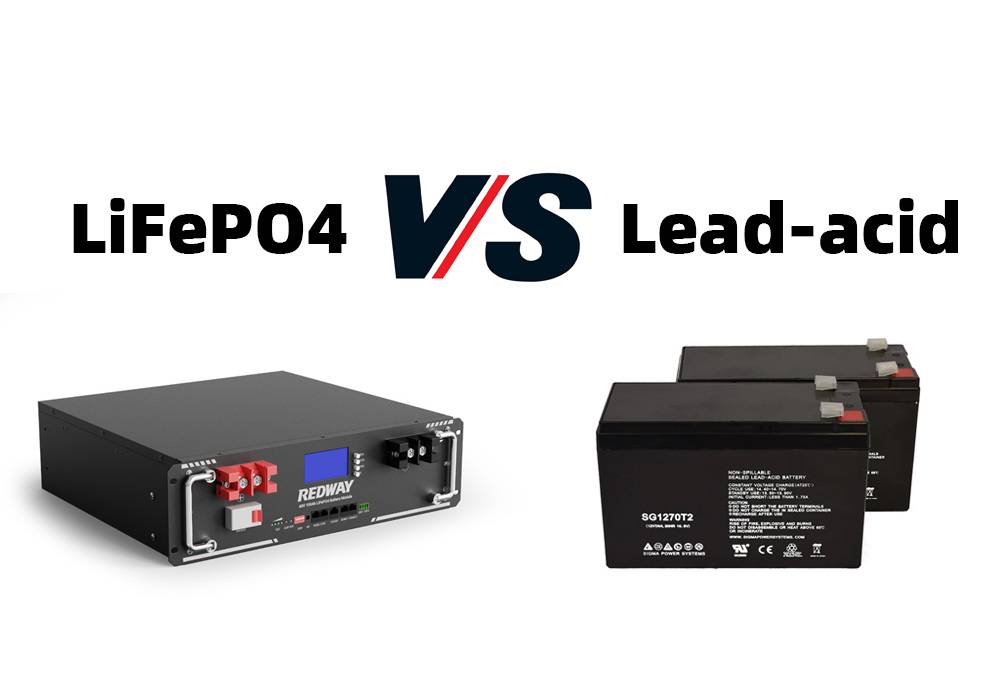In recent years, Lithium Iron Phosphate (LiFePO4) batteries have gained popularity as a more reliable and cost-effective alternative to traditional lead-acid batteries. However, some people still wonder if these batteries are worth the investment. In this article, we will explore the reasons why LiFePO4 batteries are a game-changer and why they are worth the switch.
Shocking news: LiFePO4 batteries are worth it!
The first and most obvious reason why LiFePO4 batteries are worth it is their long lifespan. Compared to lead-acid batteries, LiFePO4 batteries have a much longer life span, up to four times longer. They can also withstand more charging cycles, making them a more long-term and cost-effective option. Another advantage of LiFePO4 batteries is that they are lightweight and compact, making them ideal for use in portable electronic devices such as laptops, phones, and cameras.
The long lifespan, safety, high energy density, environmental friendliness, and low maintenance requirements of LiFePO4 batteries make them a wise investment for many applications. However, their higher upfront cost compared to other battery types may make them less suitable for applications where cost is a primary concern.

Discover the reasons why LiFePO4 batteries are a game-changer

Time to switch: why LiFePO4 batteries are worth the investment
LiFePO4 batteries: the ultimate solution for long-lasting power!
Understanding LiFePO4 Batteries
LiFePO4 batteries, also known as lithium iron phosphate batteries, have gained significant popularity in recent years due to their superior performance and reliability. These batteries utilize lithium-ion technology, offering a higher energy density compared to traditional lead-acid batteries. The following are some key features and advantages of LiFePO4 batteries:
1. Energy Density:
LiFePO4 batteries have a significantly higher energy density compared to lead-acid batteries. This means that they can store more energy in a smaller and lighter package, making them ideal for applications where space and weight are critical factors.
2. Cycle Life:
One of the major advantages of LiFePO4 batteries is their exceptional cycle life. These batteries can endure a significantly higher number of charge-discharge cycles compared to lead-acid batteries. LiFePO4 batteries can typically withstand over 2000 cycles, while lead-acid batteries may only manage a few hundred cycles.
3. Depth of Discharge:
LiFePO4 batteries can operate at a higher depth of discharge without compromising their overall performance. This means that a LiFePO4 battery can be discharged to a lower capacity without causing damage or reducing its cycle life. In contrast, lead-acid batteries should not be discharged beyond a certain threshold to maintain their longevity.
4. Battery Management System (BMS):
LiFePO4 batteries often come equipped with an advanced Battery Management System (BMS). The BMS ensures the safe and efficient operation of the battery by monitoring various parameters such as voltage, temperature, and current. This feature enhances the overall performance and reliability of LiFePO4 batteries.
Exploring Lead-acid Batteries
Lead-acid batteries have been around for decades and have been widely used in various applications, including backup power systems, automotive, and marine industries. While they have been the go-to choice for many years, lead-acid batteries come with their own set of limitations. Let’s delve into their characteristics:
1. Lead Sulfate:
One of the primary limitations of lead-acid batteries is the formation of lead sulfate during the discharge process. This leads to a reduction in the battery’s capacity and overall performance over time. Regular maintenance and periodic equalization are necessary to mitigate this issue.
2. Weight:
Lead-acid batteries are considerably heavier compared to LiFePO4 batteries. This can be a significant drawback, especially in applications where weight is a critical factor. The lighter weight of LiFePO4 batteries makes them more suitable for portable and mobile applications.
3. Limited Cycle Life:
Lead-acid batteries typically have a limited cycle life, especially when compared to LiFePO4 batteries. The number of charge-discharge cycles a lead-acid battery can endure is significantly lower, making them less suitable for applications that require frequent cycling.
4. Sulfuric Acid:
Lead-acid batteries contain sulfuric acid, which is highly corrosive and poses safety risks if mishandled. Special precautions must be taken during installation, maintenance, and disposal of lead-acid batteries to ensure the safety of personnel and the environment.
LiFePO4 VS. Lead-acid Battery: A Comparative Analysis
Redway Power: Your OEM Lithium LiFePO4 Battery Solution
When it comes to OEM Lithium LiFePO4 batteries, Redway Power stands out as a reliable and innovative manufacturer. Redway Power offers a wide range of LiFePO4 battery solutions tailored to meet the specific needs of battery component distributors and their customers. With a focus on quality, supply reliability, and after-sales service, Redway Power is the ideal partner for battery component distributors looking to provide competitive and cooperative advantages to their customers.
Conclusion
In conclusion, the comparison between LiFePO4 and lead-acid batteries reveals the clear advantages of LiFePO4 batteries in terms of energy density, cycle life, weight, and overall performance. Battery component distributors should consider these factors when recommending energy storage solutions to their customers. With Redway Power as a trusted OEM Lithium LiFePO4 battery supplier, battery component distributors can confidently provide high-quality and reliable battery components to their customers, ensuring customer satisfaction and long-term success in the market.



